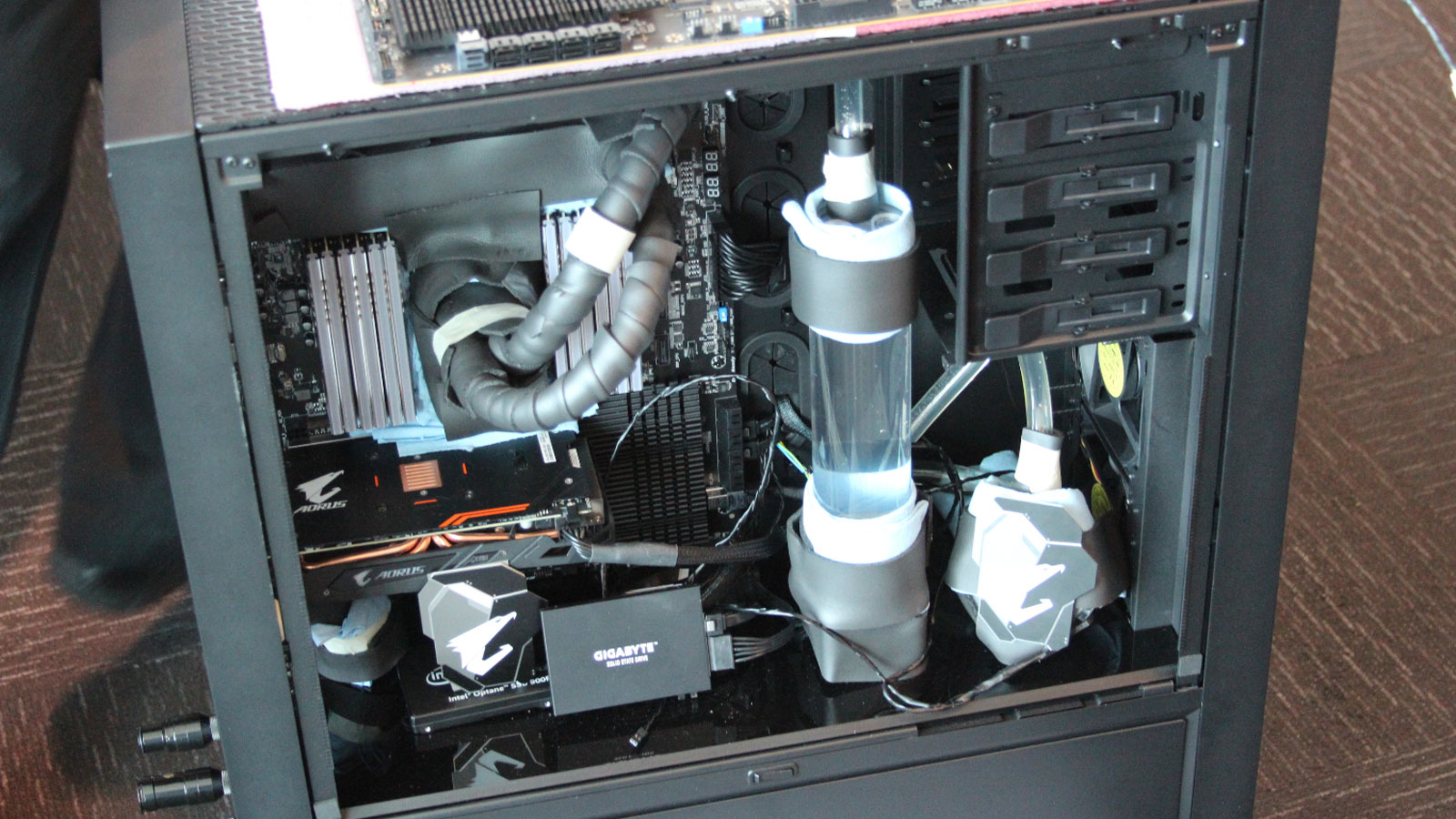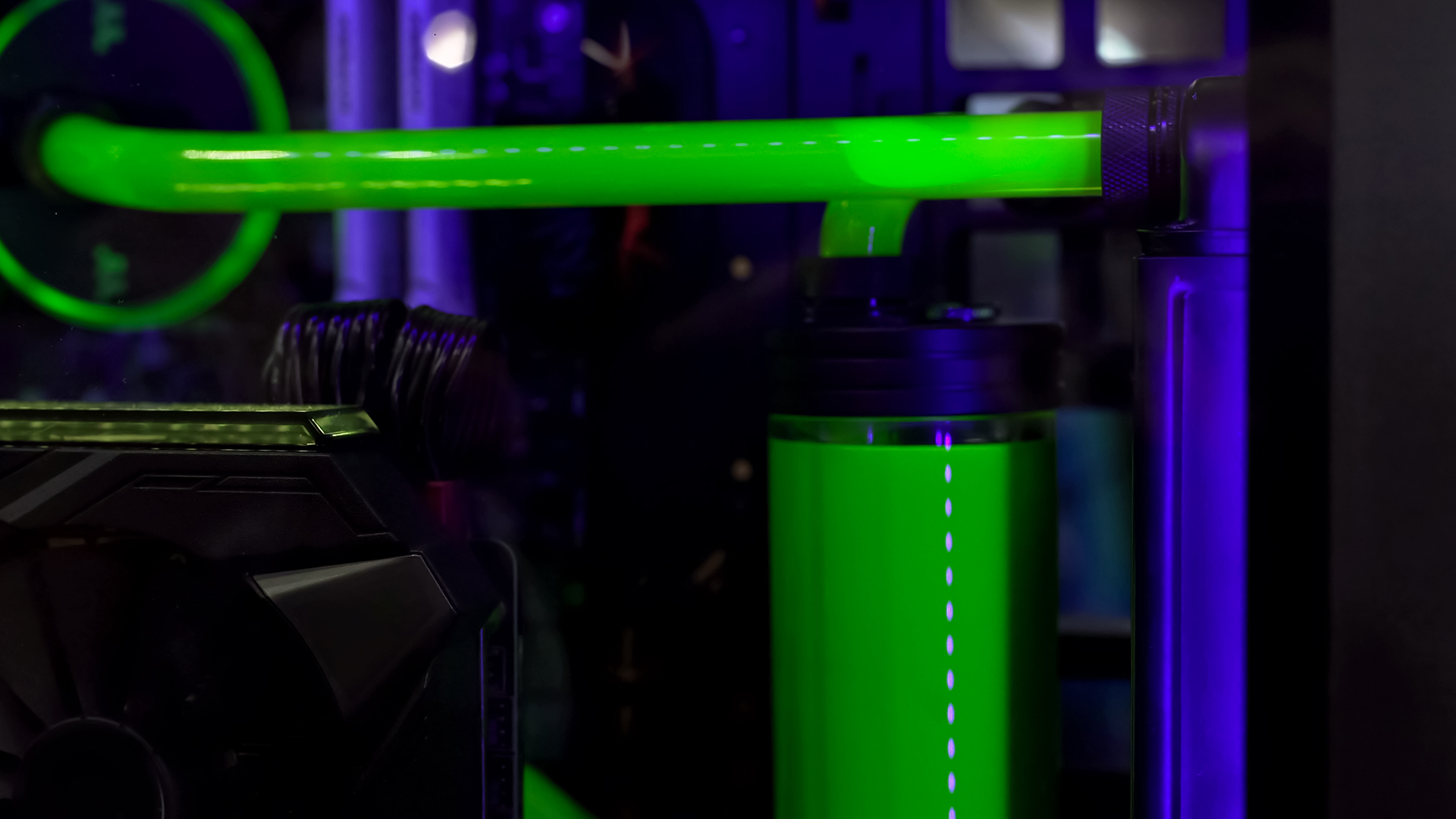What type of liquid should I use for cooling when I overclock?

You’ve spent hours planning and building your cooling setup. You’ve perused our favorite AIO CPU coolers, and have decided you want to go further. You’ve scoured the internet for the perfect fittings and painstakingly measured, cut and measured again, because “measure twice, cut once” is something people say but rarely put to use. There are many things that we have to think about, but custom cooling is nothing without its companion—the actual liquid.
The question of which liquid to use is a contentious one among enthusiasts. There are many different coolants on the market, from premixes that promise to shed a few degrees, additives that extend the life of your coolant and dyes that swear they will cool your components with style. There are biocides and corrosion inhibitors and even products that market themselves as “safe” by being completely non-conductive. These products aren’t all cases of 21st century snake oil liniments, but many of them do have drawbacks, or in some cases, solve problems that don’t really exist.

(Image credit: Intel)Non-conductive liquids
These coolants want you to stay safe. They want to make sure that if you haven’t taken the time to check your fittings and properly leak test, that you won’t completely destroy your equipment should the worst happen. These products really are non-conductive; however, all liquids become conductive over time as ions dissolve as the liquid comes into contact with metal. This starts happening as soon as you fill your loop, so while these products might be even less conductive than distilled water, they won’t save you should a leak occur down the road.
Corrosion inhibition
These additives want to make sure your cooling components don’t end up looking like Grandpa’s rusted out Cadillac. This would be fantastic if galvanic corrosion actually occurred between copper and nickel, the two most common materials used in a modern cooling system. Unless you are running incredibly cheaply made or old components, everything from blocks, to radiators will be made from either copper or nickel plated copper.

(Image credit: Mortortion / Getty)Dyes
Dyes and dyed premixes can add that extra bit of personality to your system. Matching coolant for those sleeved cables that literally left you bloodied and bruised would be nice, but you will be subjecting yourself to more rigorous maintenance procedures in the process.
Over time, dyes breakdown; different brands might take longer, but they will all leave behind messy residue that will require the complete disassembly of your water blocks to clean. In extreme cases, the residue can greatly reduce performance and restrict flow significantly. Staining is also a problem, especially if you intend on changing to another color at some point. If you are using acrylic or metal hard tubing this isn’t an issue, but typical flex tubing will stain.
Asides from these issues, many of these products also hurt your wallet (Not literally, wallets don’t have feelings). 30 dollars for a liter of premix is not uncommon and can add up quickly if you are running a more complex cooling setup.
So you ask, what should I use?
Pure distilled water.
The cheap kind that you can get at the local grocery store for less than a cup of coffee. It’s also a good idea to pick up a biocide since algae growth is a valid concern, especially if your computer is often exposed to direct sunlight. There are many options for biocide, the cheapest being a silver kill coil that can be placed in your reservoir but several companies produce reasonably priced additives to protect your system; most of which, also include a corrosion inhibitor, while not needed, it won’t hurt having it there. I highly recommend checking out Primochill’s Liquid Utopia additive that can be found here.
Do this and your hottest components, like your graphics card, will be happy. Treat your gaming PC right.


Leave a Reply